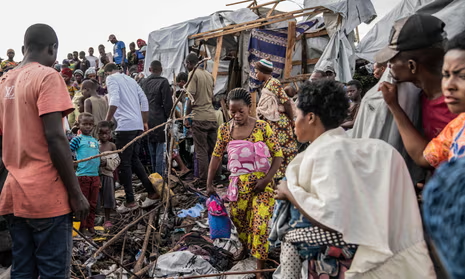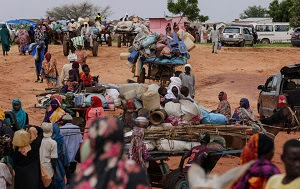Rwanda’s Foreign Minister Olivier Nduhungirehe said Saturday that his Congolese counterpart refused to sign an agreed-upon deal aimed at resolving the M23 rebel conflict in eastern Democratic Republic of Congo, which has displaced over 1.7 million people.

Speaking on the sidelines of a summit for French-speaking countries in France, Nduhungirehe told Reuters that delegates, including Congo’s head of military intelligence, had previously agreed to a plan “for neutralising the FDLR and lifting Rwanda’s defence measures.”
The deal was scheduled to be signed by ministers on September 14. “We were ready to sign … but the Congolese minister refused,” Nduhungirehe said, adding that the Congolese objected to the proposed timeline of actions.

Congo, the United Nations, and others accuse Rwanda of backing the Tutsi-led M23 group, a claim Rwanda denies. Rwanda, in turn, accuses Congo of fighting alongside the Hutu rebel group FDLR.
The conflict has deepened the region’s humanitarian crisis and raised fears of a wider war. Recent negotiations aimed to ease tensions, but this latest development highlights the ongoing challenges in reaching a resolution.

French President Emmanuel Macron, who hosted separate meetings with Congolese President Felix Tshisekedi and Rwandan President Paul Kagame, acknowledged the situation remains “too tense” for a three-way meeting.
As regional diplomatic efforts continue, the failure to sign this agreement underscores the complex nature of the conflict and the difficulties in achieving lasting peace in the region.
A spokesperson for the Congolese government did not immediately respond to requests for comment on the matter.



